Established in 1997, the Center for the Study of Teaching and Policy (CTP) was initially created as a consortium of several major universities, including Stanford University, University of Michigan, University of Pennsylvania, and University of Washington (lead institution). CTP began as one of 12 national research centers, supported by a grant from the Office of Educational Research and Improvement (OERI) of the United States Department of Education.
Today, the Center supports inquiry that is focused on education policy, the educator workforce, leadership, and teaching, with a special emphasis on education policy issues in Washington state.
Leadership

David Knight
Director
Dr. David Knight is Director of the Center for the Study of Teaching and Policy and the Center for Early Childhood Policy and Equity at the University of Washington College of Education and serves as Associate Professor of Education Finance and Policy. David is a Fellow at the National Education Policy Center and a member of the Board of Trustees of the National Education Finance Academy.
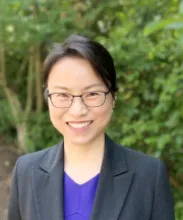
Min Sun
Associate Director
Dr. Min Sun specializes in teacher learning, the school and policy contexts that support teacher learning, and AI/ML research and application developments in education. Her work has been published in premier research journals in education and has been funded by IES, NSF, Spencer Foundation, William T. Grant Foundation, among others.
Research Affiliates

Christopher Villa
Principal Consultant, Helix Solutions
Christopher C. Villa is Principal Consultant at Helix Solutions, a consulting firm specializing in program evaluation, research, data analysis, and monitoring services. He is also an affiliated researcher with the University of Washington Center for the Study of Teaching and Policy and a member of the American Evaluation Association. He received a joint MBA/MPA degree and a B.S. in Civil Engineering from the University of Texas El Paso.
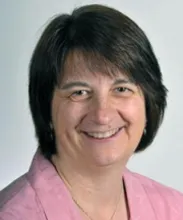
Margaret Plecki
Professor Emeritus
Dr. Plecki is Emeritus Professor at the University of Washington College of Education with research and teaching expertise in school finance, education policy, the economics of education, educational leadership, the allocation of resources for school improvement, teaching quality, and mixed methods research design. She is the former Director of the› Center for the Study of Teaching and Policy and is a past president of the Association for Education Finance and Policy. Prior to joining the UW faculty, she worked as a special education teacher and school administrator.
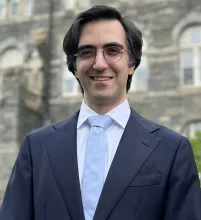
Pooya Almasi
Assistant Professor, Morgan State University
Dr. Pooya Almasi is an Assistant Professor of Quantitative Methodology in the Department of Advanced Studies, Leadership, and Policy at Morgan State University. He previously served as a Research Scientist at the University of Washington College of Education. His research focuses on the economics of education, labor economics and public economics, applying quantitative methods to analyze educational programs and policies with a focus on equity and impact.
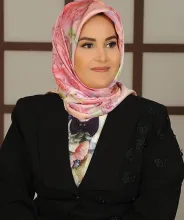
Zahra Eslami
Web Developer | Public School Advocate
Zahra Eslami holds two master’s degrees in Computer Science and Information Technology and is an innovative, forward-thinking IT leader and public school advocate. She served as a Research Assistant at the University of Minnesota, leading web development for Early Childhood Family Education (ECFE) programs. Her work blends educational technology, business analysis, and equity-focused design to create solutions that improve learning access and systemic impact in K–12 education.
PhD Students
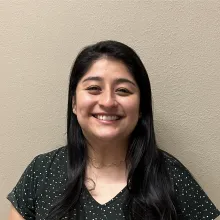
Fanny Pacheco
Fanny Pacheco, M.Ed., is a current PhD student in the College of Education at the University of Washington in the Education Policy, Organizations, and Leadership program. Her research focuses on the early childhood education workforce, labor organization, and educational justice. She draws on theories from sociology and economics, leveraging quantitative data and research approaches. Fanny’s work emphasizes the need to envision a different and more equitable early childhood education system that works for all children, families, and teachers. She is motivated from a decade working in the early childhood education field and experiencing the struggles of the fragmented early childhood system.

Geo Yang
Ji Ho (Geo) Yang, M.Ed., is a Ph.D. candidate in Educational Policy, Organization, and Leadership at the University of Washington College of Education. His research focuses on school-level resource management in Black urban schools. He emphasizes qualitative research to examine racialization and educational inequities in non-white school spaces through the context of school resourcing. Geo has engaged in various of codesign projects aimed to redress educational inequities, including early Black literacy and district-level family engagement. Prior to his doctoral journey, Geo taught in Chicago Public Schools as an elementary teacher and track coach, where he served as the social studies lead for his school.

Kendall Fujioka
Kendall Fujioka, J.D., M.S.W. is a Ph.D. student in Educational Policy, Organizations, and Leadership at the University of Washington College of Education. With a multidisciplinary background in law, social work, and education, Kendall’s research examines students’ civil rights and education finance reform. Her work is guided by a strong commitment to equity, inclusion, and justice in public education systems. Kendall’s research focuses on federal and state-level education policy, especially as it impacts students who have been historically underserved by school systems, including those who are low-income, foster or homeless, racially marginalized, or identified with disabilities.
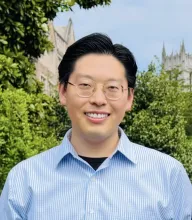
Lu Xu
Lu Xu, M.A., is a Ph.D. candidate in Education Policy at the University of Washington College of Education. As a scholar of educational inequality and economic opportunity, his research explores the intersection of educational policy and the economics of education across the P–22 continuum. He employs quantitative and qualitative methods and cost-effectiveness analysis to address systemic inequities and enhance educational and career opportunities. His work evaluates the efficacy and efficiency of initiatives like tuition-free college programs, dual credit/enrollment policies, and educator workforce development. Through his research, Lu aims to provide actionable insights that inform equitable and effective education and workforce policies and practices.